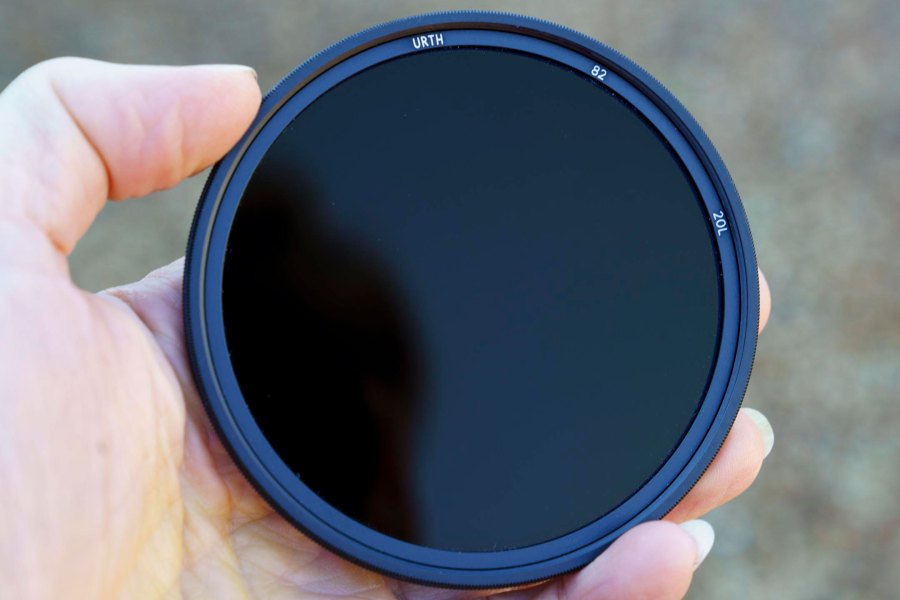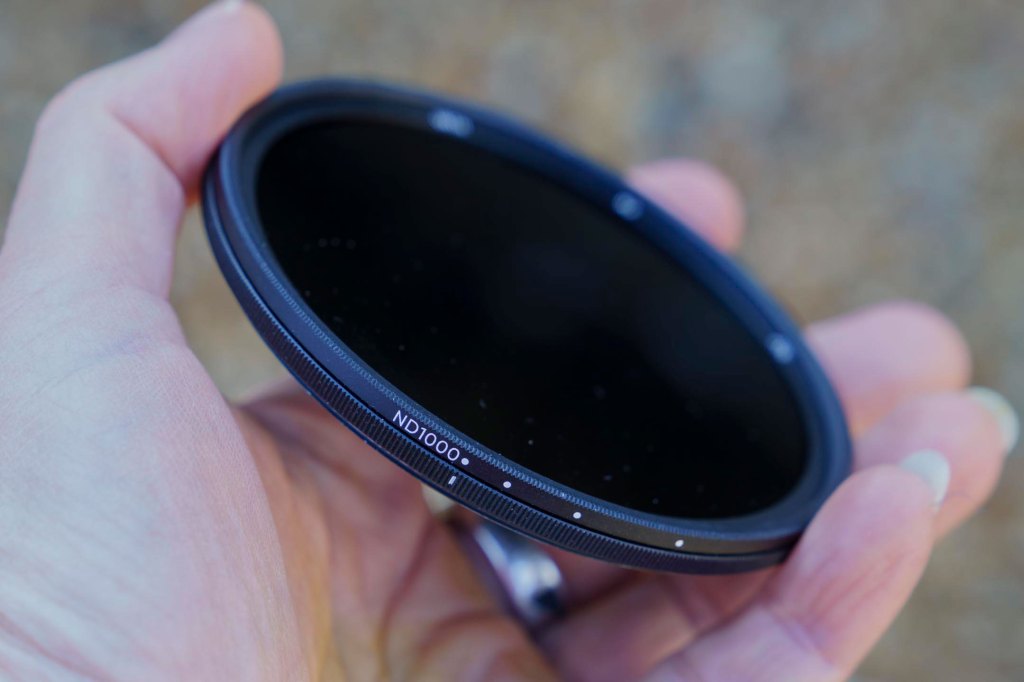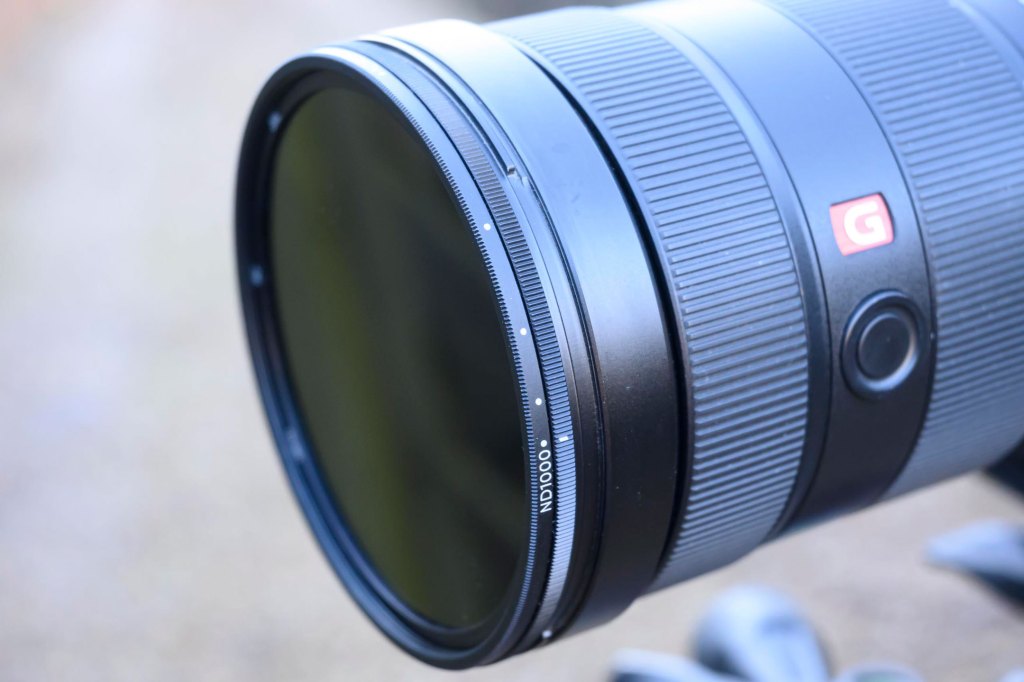Amateur Photographer verdict
The Urth Variable ND64-1000 Filter Plus+ is a good choice for those shooting video in bright light. Polarisation effects make it less suitable for photographers with wideangle lenses, though.- Variable light reduction
- Durable construction
- Minimal colour cast
- Polarisation issues
- Screw-fit rather than magnetic
- Not ideal for wide lenses
The Urth Variable ND64-1000 Filter Plus+ enables the amount of light entering a lens to be reduced by 6 to 10 stops simply by rotating a ring, and it’s available in 16 sizes ranging from 37mm to 95mm. It screws smoothly onto a lens and Its ultra-slim metal alloy rim minimises vignetting. Another nice touch is that the filter comes in a sturdy, protective screw-close tin for storage and transport.
Urth Variable ND64-1000 Filter Plus+ at a glance:
- $75 – $159 / £55 – £109
- 16 sizes from 37mm to 95mm
- 20-layer nano-coating
- Cuts 6-10 stops of light
- Magnesium/aluminium alloy rim
- uk.urth.co
Urth makes the filter from German B270 Schott glass, to ensure high clarity. In addition, there are 20 layers of nano-coating to improve light transmission, resist scratches and repel water or greasy fingerprints and make cleaning easier. The coatings also help maintain consistent light reduction and deliver more accurate colours.
While the filter performs well in some situations, cutting the claimed amount of light, its use of two polarising layers to enable the controllable light reduction means it suffers from the same issues as many other variable ND filters. For example, you need to keep an eye on the angle of the sun as this influences the degree of the polarisation effect. This can be a significant issue with wide-angle lenses, as the polarisation effect can vary across the frame leading to dark patches in the image. You may also see a black cross when shooting at apertures smaller than f/9.
Urth Variable ND64-1000 Filter Plus+ key features:
- Optical Glass: German B270 SCHOTT optical glass is used for high image quality
- Nano Coatings: 20-layers of nano coating help keep the filter clean and enhance light transmission
- Metal Rim: The magnalium rim is slim to reduce vignetting, but durable and guaranteed for life
- Double-threaded: Double-threading allows the filter to be stacked with other filters
I found the Urth Variable ND64-1000 Filter Plus+ very useful for reducing the shutter speed to a specific value, for example 30 seconds, when a standard 10EV filter was too strong and a 6EV filter was too weak. But there were also times when the polarisation effect made the filter unusable.
At its strongest setting, there can be a slight colour cast, sometimes blue, sometimes warm, but it’s easy to correct in raw files if you need to. Comparing images shot with and without the filter reveals that it maintains detail levels well.

Looking at some alternatives, Urth also makes a Variable ND2-32 (1-5 stop) Filter Plus+ which will have less dramatic polarisation effect. However, at $115-$225 / £89-£179 the Urth Magnetic ND Selects Filter Kit Plus+, which includes three filters (ND8, ND64, and ND1000) that snap on magnetically, makes a very attractive alternative.
Urth Variable ND64-1000 Filter Plus+: Our Verdict
The Urth Variable ND64-1000 Filter Plus+ is a versatile and well-constructed filter that’s especially useful when shooting video work in variable lighting conditions. Its robust build, high-quality German glass and effective nano-coating make it a good choice, especially if you use standard or telephoto lenses.
However, if you frequently use wide lenses or need to shoot at smaller apertures, you are likely to encounter its limitations and find that a collection of standard ND filters makes a more reliable choice. It’s an excellent variable ND filter, but a set of standard ND filters probably makes more sense for photography.

Follow AP on Facebook, X, Instagram, YouTube and TikTok.










